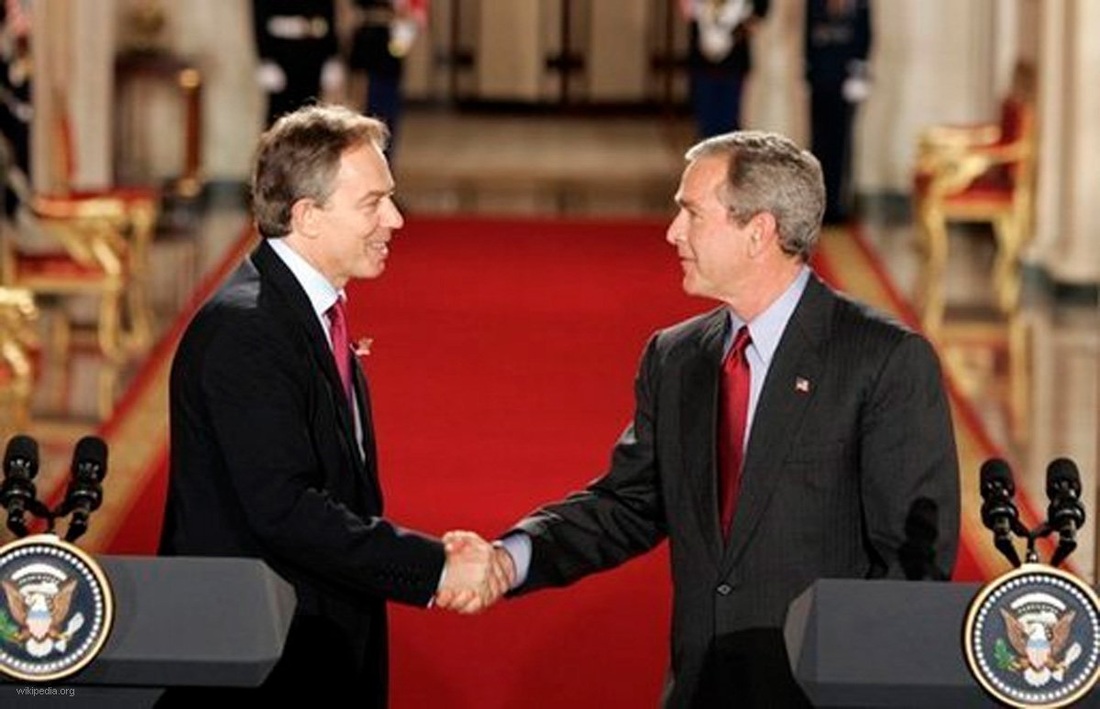When John Chilcot appears before television cameras on Wednesday morning, it will have been 2,578 days, or just over seven years, since the retired civil servant was announced as the head of an inquiry into Britain’s involvement in the U.S.-led Iraq war.
The families, many of whom will be in the Queen Elizabeth II Centre in central London listening to Chilcot disclose his findings, have been waiting for some measure of accountability since the invasion to topple Saddam Hussein’s regime.
They are the relatives of 179 British soldiers who died in action between March 2003 and April 2009, when the last U.K. troops were withdrawn from Iraq. Nearly 50 were killed by roadside bombs after the initial combat mission. The number of Iraqi deaths over the same period is counted in tens of thousands.
“The objective is to learn the lessons from the events surrounding the conflict,” Brown told the House of Commons on June 15, 2009.
“The Iraq Inquiry will look at the run-up to conflict, the conflict itself and the reconstruction, so that we can learn lessons in each and every area.”
Chilcot and his team would have access to all U.K. government papers and the ability to call any witnesses, Brown said.
What followed was one of the longest-lasting and — at a cost of £10 million ($13 million) — most expensive inquiries in British history. The final document is estimated to contain 2.6 million words and hard copies will come in 13 volumes, although it will also be made available online.
More than 150 witnesses were called to give evidence. Tony Blair, who led Britain into the war and whose career has come to be widely associated with it, was called twice.
Blair, Bush correspondence
Brown predicted the inquiry would take a year to complete.
The delay was partly caused by a bitter debate over the declassification of dozens of documents — in particular, the correspondence between Blair and U.S. President George W. Bush.
Senior British civil servants argued that communication between the two leaders could not be published for national security reasons but it was eventually agreed it could be offered in a summarised form and not quoted directly.
Another reason was the decision to give those criticised in the report the right to reply and make comments before its completion.
Wednesday’s report was commissioned to examine only the U.K.’s role in the war, so it will not contain an extensive assessment of the role of the U.S. and other countries in the invading coalition, such as Poland and Australia.
Blair and his foreign secretary, Jack Straw, are among the political leaders of the time expected to come under heavy criticism.
However, the Iraq war was launched on the pretext of intelligence that suggested the Saddam Hussein regime possessed weapons of mass destruction — weapons that were never discovered.
That is why the Chilcot report is also expected to be tough on Richard Dearlove, the then chief of Britain’s MI6 foreign intelligence service, and John Scarlett, who was head of Britain’s Joint Intelligence Committee and ultimately responsible for directing the country’s intelligence organizations.
There may also be criticism of the military for failing to provide troops with adequate equipment.
Many — including dozens of victims’ families — are hoping the report will be an opportunity to lay the blame at the feet of the man they say was the architect of Britain’s role in the war: Tony Blair.
War crimes
One such hopeful is reported to be Jeremy Corbyn, Blair’s successor as Labour Party leader.
The Sunday Times reported last weekend that Corbyn would use his parliamentary immunity to accuse Blair of war crimes.
The newspaper quoted an unnamed source as saying: “He’s going to say that Blair’s a full-on war criminal… Corbyn will say it in parliament and then he’s planning to address anti-war rallies outside. He’ll have to be careful because if he calls him a war criminal outside the chamber… Blair could set the lawyers on him and bankrupt him.”
However, even before Chilcot started his work, Brown said the inquiry would not seek to assign blame, let alone any criminal responsibility for the war or acts committed during its execution.
He insisted in his 2009 announcement that “the primary objective of the committee will be to identify lessons learned.”
Brown added: “The committee will not set out to apportion blame or consider issues of civil or criminal liability.”
Chilcot will announce his findings at 11 a.m. local time (1000 GMT) and parliament is expected to debate the findings later that day.
After seven years, anticipation of the report’s findings is mixed between those who anticipate it will shake the political establishment and those who predict a whitewash.
For 179 families, many will simply be hoping for a better understanding of why their loved one died in an unpopular war thousands of miles from home.
Source www.middleeastmonitor.com/20160706-britain-confronts-iraq-war-past/


 RSS Feed
RSS Feed